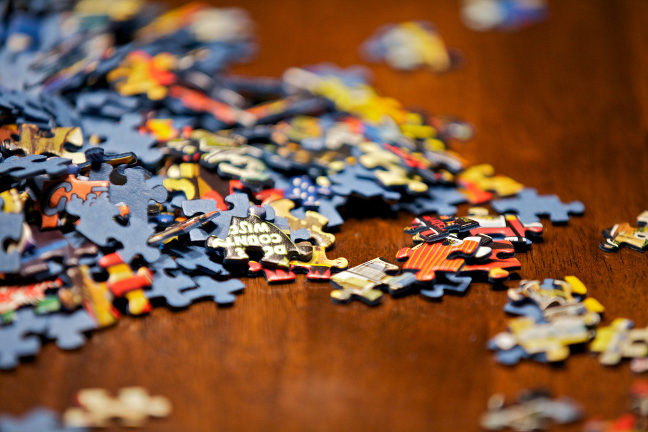Find out how puzzles can train your brain and enter our competition to win a puzzle bundle and £30 magazine.co.uk voucher.

New Year’s resolutions are often focussed around getting slimmer, or training our bodies. In fact, that’s the most popular resolution of them all – not much of a surprise in this vain society of ours!
Sure, it’s great to have a beautiful body, but what about having a beautiful mind? Perhaps 2016 should be the year you commit to building your intelligence, rather than your muscles. But are there ways you can train your brain in the same way that you can train your body?
Brain training babies
Studies have shown that brain training works from as young as 11 months old. In an experiment carried out by the University of London, Birkbeck, 42 babies were split into two groups and either shown a basic computer program, which encouraged them to track moving targets, or cartoons.
The study showed that the babies given the computer program performed better than those shown the cartoons in tests that measured powers of concentration.
A child’s brain is much more ‘neuroplastic’, meaning it will physically change and mould depending on how it’s used – that’s why it’s easier to learn new skills the younger we are. Although this plasticity lessens the older we get, it never goes away, allowing us to train our brains throughout life.
One way to do this is through puzzles and games, which are used throughout primary education to aid learning. Emma Bradley from Emma & 3 said:
“I use lots of puzzles with my six-year-old as it helps with problem-solving and building concentration. I am a qualified teacher and know this helps our children develop. In fact, during teacher training we were shown how to make resources including puzzles to aid children's development.”
Does it work for adults?
The popularity of ‘brain training’ using technology skyrocketed in 2005 with the release of ‘Dr. Kawashima's Brain Training’ for the Nintendo DS. Kawashima, a Japanese neuroscientist, developed the game on the back of a hugely successful brain training book that sold over 2.5 million copies worldwide.
But recently the science behind brain training apps has been called into question: the American company Lumosity agreed to $2 million of refunds for making false claims that its games reduced intellectual impairment from ageing.
This being said, there’s also a large bank of scientific evidence that proves puzzles can boost brain function. Researchers from the University of Michigan found that subjects who performed a simple memory puzzle for 20 minutes a day, for 20 days, saw improved performance in intelligence tests and increased problem-solving ability.
Dr. Marcel Danesi, an expert in the relationship between puzzles and the brain, believes there’s little doubt that puzzles are beneficial to the mind, saying that the scientific evidence against is too ambiguous. In a post for Psychology Today he recalls:
“I saw this with my own eyes within my own family. I once suggested to an ailing relative, who suffered from a serious brain-degenerative disease, to engage in crosswords and Sudoku. He had never done puzzles in his life. His doctor immediately saw a significant slowing down of the degeneration.”
How can you benefit?
The reason why it’s hard to absolutely prove that puzzles improve brain function is simple: there are loads of different puzzles, and loads of different brain functions. Research by the University of Cambridge, commissioned by Puzzler media, found that:
- Crosswords improved verbal fluency
- Word games, combined with traditional teaching, are more effective than traditional teaching alone in learning vocabulary
- Sudoku puzzles exercise working memory, and can be adapted to wider educational uses
So, if you only want to improve certain aspects of memory, only concentrate on certain types of puzzles. On the other hand, if you want to improve your general brain function, you’ll need to complete lots of different types of puzzles.
Either way, commitment is the key to using puzzles for brain training. Just like training your body, you have to keep up the work, or you’ll quickly lose any benefits.







Thanks